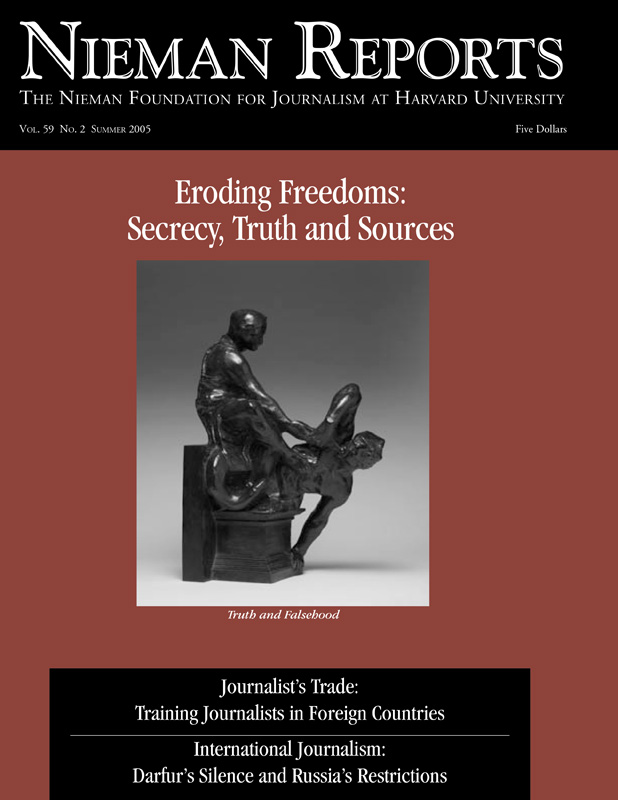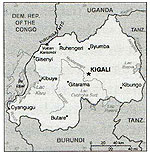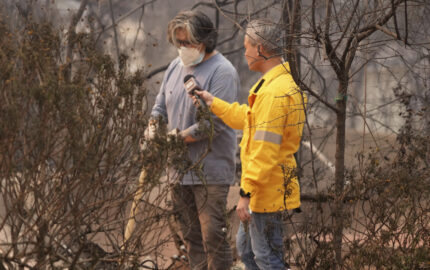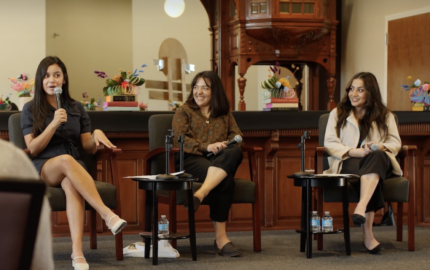
Eroding Freedoms: Secrecy, Truth and Sources
Among the casualties of the invasion and occupation of Iraq have been truth and trust, according to Sig Christenson, military affairs writer for the San Antonio Express-News. After working as both an embedded and independent reporter in Iraq, he writes about the “propaganda war within Gulf War II,” explaining that “Its roots are in Ground Zero, and I have been a willing participant. So, too, were many other reporters.”
In 1993, some months before the third genocide of the 20th century, the one that left one million people dead and two million in refugee camps, the Canadian International Development Agency (CIDA) invited me to teach journalism to the employees of Radio-Rwanda, the state-owned newsroom in Kigali. This was an experience that exposed the sharp differences between freedom of the press in my country and what was happening with journalists there.
As I was leaving to go to Kigali, the pressure between the Tutsis and Hutus in Rwanda was already so intense that CIDA had to buy open plane tickets for me, in case of an emergency return. Contingency evacuation routes by Jeep through Uganda were also planned for, if needed.
Once I arrived in my classroom I found that the Rwandan government had appointed a supervisor to attend my teaching of journalists, who were both Hutus and Tutsis. Since these groups were already at war with one another, this meant I had to be pretty safe in the approach I took regarding the freedom of the press in front of them.
My surprise came when I asked my Rwandan students to summarize and prepare leads on texts I’d already taught to journalism students at Université de Montréal. I was appalled to learn that in Kigali—unlike in Montreal—these journalists would lead only with what was seen as the “official” news, such as the inauguration of a decontamination process at a packing plant. They would not begin their news stories with information in my prepared text that exposed the political scandal, as did the journalism students in Montreal. These Kagali students, who were working as journalists for Radio-Rwanda, led with the official news. They used not a single word about the scandals.
When I first noticed this, I didn’t react right away in class in the presence of the Rwandan supervisor. I waited to talk to students during breaks. All of the Hutus and Tutsis admitted that they’d seen the real leads—the scandals—but none of them had dared to expose them for fear of adverse, even violent, reactions by the government. Some of them told me that the state’s control was such that in their radio work they had to cancel the news bulletins altogether to read unedited versions of the president’s messages. If any of my students reacted against the government’s methods of control, they feared for their lives.
From then on, I used every moment I had during the class breaks, when the students and I would be away from the supervisor, to tell these Rwandan journalists more about the kind of press freedom we enjoyed in Canada. In talking with them about this, I had to let them know that such latitude still came with some limitations.
At the conclusion of our time together, the students shared their belief that the violence that had erupted between the Tutsis and the Hutus since the 1950’s could have been avoided, or greatly diminished, if members of each group had been better informed about what was actually happening in their country.
After my experience in Kigali I keep asking myself this question: Would there have been a genocide in Rwanda if journalists there could have done their jobs properly during these decades?
Jacques A. Rivard, a 1996 Nieman Fellow, recently retired from the Canadian Broadcasting Corp.
As I was leaving to go to Kigali, the pressure between the Tutsis and Hutus in Rwanda was already so intense that CIDA had to buy open plane tickets for me, in case of an emergency return. Contingency evacuation routes by Jeep through Uganda were also planned for, if needed.
Once I arrived in my classroom I found that the Rwandan government had appointed a supervisor to attend my teaching of journalists, who were both Hutus and Tutsis. Since these groups were already at war with one another, this meant I had to be pretty safe in the approach I took regarding the freedom of the press in front of them.
My surprise came when I asked my Rwandan students to summarize and prepare leads on texts I’d already taught to journalism students at Université de Montréal. I was appalled to learn that in Kigali—unlike in Montreal—these journalists would lead only with what was seen as the “official” news, such as the inauguration of a decontamination process at a packing plant. They would not begin their news stories with information in my prepared text that exposed the political scandal, as did the journalism students in Montreal. These Kagali students, who were working as journalists for Radio-Rwanda, led with the official news. They used not a single word about the scandals.
When I first noticed this, I didn’t react right away in class in the presence of the Rwandan supervisor. I waited to talk to students during breaks. All of the Hutus and Tutsis admitted that they’d seen the real leads—the scandals—but none of them had dared to expose them for fear of adverse, even violent, reactions by the government. Some of them told me that the state’s control was such that in their radio work they had to cancel the news bulletins altogether to read unedited versions of the president’s messages. If any of my students reacted against the government’s methods of control, they feared for their lives.
From then on, I used every moment I had during the class breaks, when the students and I would be away from the supervisor, to tell these Rwandan journalists more about the kind of press freedom we enjoyed in Canada. In talking with them about this, I had to let them know that such latitude still came with some limitations.
At the conclusion of our time together, the students shared their belief that the violence that had erupted between the Tutsis and the Hutus since the 1950’s could have been avoided, or greatly diminished, if members of each group had been better informed about what was actually happening in their country.
After my experience in Kigali I keep asking myself this question: Would there have been a genocide in Rwanda if journalists there could have done their jobs properly during these decades?
Jacques A. Rivard, a 1996 Nieman Fellow, recently retired from the Canadian Broadcasting Corp.



